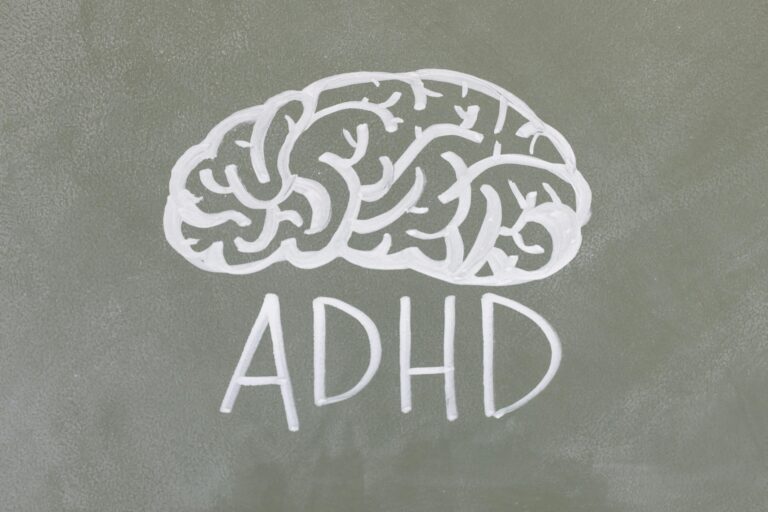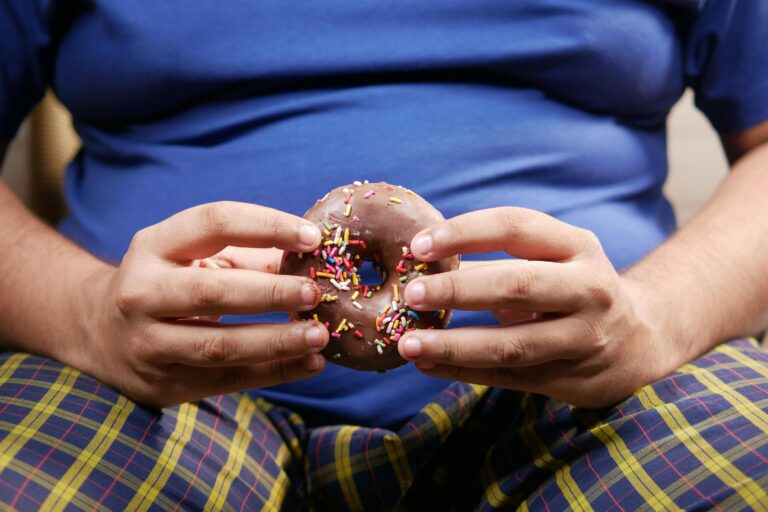In particular, balanced eating helps prevent and minimize ADHD.
Asymmetric Eating and ADHD
Rewind merely three decades ago and supermarket shelves had sparse options. Most foods were natural with minimal processing, dyeing and artificial flavoring.
Times have clearly changed.
Today’s supermarket aisles are overflowing with an abundance of options. The problem is those options are largely unhealthy.
For every healthy, unprocessed, organic offering there are seemingly countless processed foods laden with harmful dyes, unhealthy additives and addictive sugar and salt.
Those who eat asymmetrically, meaning an excess of unhealthy foods, suffer the consequences in the form of ADHD.
The answer?
Conscious, symmetrical eating. There’s nothing wrong with eating delicious food, especially if those scrumptious treats are balanced with equal amounts of healthy food and exercise.
As an example, most youngsters gravitate toward salty and sugary delights after school and between meals.
The key is to offset those unhealthy treats with nutrient and mineral-packed meals. Regular exercise is also an essential component of balance as it helps minimize the impact of simple carbs, sodium-laden and sugar-filled foods.
The Addictive Sugar High We all Crave
Kids tend to be rambunctious and disruptive after eating sweet treats. The “sugar high”, once thought to be a myth, is quite real. Sugar spikes the body’s insulin, providing a rush of endorphins and energy.
The ensuing “sugar crash” is depressing and counterproductive. Though small amounts of sugar satiate kids and adults, too much sugar makes for rowdiness and misbehavior. The sugar high of sweet treats also contributes to ADHD.
Parents are encouraged to monitor their kids’ eating habits, especially after school. Most kids, tweens and teens rush to the pantry in search of sugary treats that take the edge off after a long day at school.
Minimizing kids’ sugar consumption reduces their hyperactivity. Kids who are less hyperactive find it is easier to concentrate. It is this ability to concentrate that improves behavior and academic performance.
The Role of Food in Brain Functionality
Studies show consuming nutritious snacks and meals facilitates proper brain functionality. Eating too little food or food of the wrong type really does make it difficult to think clearly.
On the flip side, consuming significant amounts of sugary food spikes energy to destructive levels. It is this hike in energy that makes it increasingly challenging to maintain a train of thought and sit still.
Proper nutrition is essential for the generation of critically important brain chemicals and healthy activity.
For example, nutrients are necessary for the creation of specific neurotransmitters that serve as biological couriers. It is these neurotransmitters that act as chemical message carriers, sending nerve signals throughout the body.
Balance Your Sources of Caloric Intake
Chances are you’ve heard of calorie counting in passing yet haven’t tabulated your own caloric intake. It is the food and beverage sources of calories that largely shape health and cognition.
The uncomfortable truth is that the vast majority of kids in the United States obtain most daily calories from unhealthy unprocessed foods. The time has come to admit our youngsters have developed a dependence on addictive sweet treats and salty snacks.
Instead of filling the cupboards and refrigerator with ultra-processed foods, parents and grandparents are advised to pivot to the Mediterranean approach.
Mediterranean eating is highlighted by vegetables, fruits, healthy fats, complex carbs and lean proteins.
A well-rounded diet characterized by a balanced approach to caloric intake improves both physical and mental health.
The outcome is a better-functioning mind and body for both kids and adults.
The Role of Sugar in ADHD
There is a popular misconception that technology and sugar are the primary causes of ADHD. Though society has become increasingly dependent on technology and convenient sugar-laden food, sugar is not a direct cause of ADHD.
Rather, sugar is likely to enhance hyperactivity, a characteristic of those saddled by ADHD. However, caffeine also causes hyperactivity yet it does not directly cause ADHD.
At most, sugar exacerbates the symptoms of ADHD.
It is this exacerbation that should encourage parents to minimize their children’s intake of sugar. Ideally, kids will avoid unnatural, artificial sugar altogether.
Parents should steer their kids toward all-natural sources of sugar found in fruits including:
- Grapes
- Apples
- Pears
- Cherries
- Apricots
A Slightly Imbalanced Approach to Eating Might be a Good Thing
Balancing healthy meals with unhealthy meals has the potential to backfire across posterity. A slightly imbalanced nutrition plan that favors vegan and vegetarian foods with a focus on protein appears to be optimal.
As an example, nutritionists and athletes alike rave about the merits of Tom Brady’s 80/20 approach to eating. Brady eats vegan 80% of the time and consumes sources of lean protein, meaning meat, the other 20% of the time.
The 80/20 approach to eating is also optimal when it comes to regular meals versus cheat meals. At least 80% of the food and beverages you eat should be healthy.
Treating yourself to the foods and drinks you crave the other 20% of the time helps satiate while maintaining mind and body health.
If There is a Will, There is a Way
At this point, it is safe to assume nearly everyone has at least slight ADHD considering how the human brain has been revamped by technology. We’ve quickly transitioned from a slow-paced human-centric society to one of immediate gratification.
You have the power to reformat your mind and body.
Healthy eating is 99% psychological and 1% physical.
It is the decisions you and your family make that ultimately determine if you will worsen your ADHD. Healthy eating might even help prevent the formation of ADHD.
Nutritional psychiatrists are here to help. Ask for guidance in your nutrition journey and your food psychologist will steer you in the right direction.
Meet with a nutritional psychiatrist and you’ll find the elimination approach to food psychology and dieting isn’t always optimal. The removal of ingredients from your diet followed by adding each ingredient back to pinpoint which causes or worsens ADHD might not be accurate.
The elimination approach to combating ADHD might even prevent your child from obtaining the nutrients necessary for a healthy body and mind. Such a drastic approach has the potential to cause more harm than good.
A Strategic Approach to Developing and Maintaining Balance
Avoiding unhealthy beverages and foods is easier said than done. Whether you are at a restaurant, convenience store or supermarket, salt and sugar-filled items are seemingly ubiquitous.
Bypass processed foods in favor of those that are all-natural and colorful.
Incorporate a wide variety of veggies, fruits, seeds, nuts and protein into your diet. Eating the rainbow really does help balance the body, mind and soul.
Balanced eating also requires the consumption of wholegrains instead of refined alternatives. Wholegrains are chock-full of fiber that enhances digestion and alertness.
Nutritional psychiatrists also suggest wholegrain foods with fiber help reduce hyperactivity.
The mantra of balance extends beyond mealtime. Balanced snacking is essential for a healthy mind and body. Instead of plying your kids and yourself with sugary and salty snacks, opt for those that nourish the brain and body.
Healthy snacks include:
- Natural yogurt
- Carrot sticks
- Celery sticks
- Hummus
- Wholegrain crackers
Unless you are a physically active person, it might not be wise to attempt to meet your nutritional needs with food alone.
Consider taking supplements to offset any potential vitamin and mineral imbalances.
Adequate levels of magnesium, vitamin B, zinc and iron all help maintain brain health and attention span.
Balanced Hydration
Sufficient balance also requires adequate hydration. Leave the sugar-laden fruit juices and soft drinks on the store shelves.
Instead, opt for plain water or water flavored with freshly squeezed lemon or lime.
If you or your kids need a pick-me-up, don’t reach for an energy drink, soda or an expensive sugar-filled gourmet coffee.
Instead, choose tea. Herbal teas with chamomile, peppermint and other natural flavors provide a pick-me-up without dehydrating the body.
Nutritional Psychiatry is a Game-Changer
Tap into the expertise of your food psychiatrist along with your family doctor and/or pediatrician. Such consultations arm you with the knowledge necessary for strategic eating.
The knowledge of nutritional psychiatry is arguably more important than physical exercise. Even several hours of daily exercise isn’t enough to balance the effects of unhealthy eating.
The moral of the story is mind over matter.
Focus on your mind state and the rest will follow. Above all, use your nutritional psychologist’s treasure trove of information for a healthier approach to eating.
Abide by a strategic approach to eating with a focus on balance and you might prevent ADHD.
At a bare minimum, you’ll mitigate your family’s attention deficit while navigating through the allure of processed food and addictive technology.







